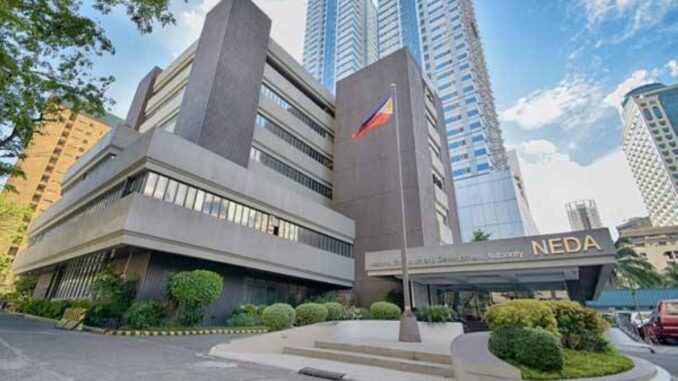
THE National Economic and Development Authority (NEDA) Board on Tuesday approved the issuance of an executive order (EO) implementing the Philippines-Korea Free Trade Agreement (PH-KR FTA) along with two major infrastructure projects collectively worth P63.2 billion.
The EO will cover tariff commitments under the trade deal, which was signed on Sept. 7, 2023, during the 43rd Asean Summit in Jakarta, Indonesia, the NEDA said in a statement.
“[T]he PH-KR FTA aims to strengthen economic relations between the two countries by facilitating trade and investment flows, removing barriers to market access and creating new business and investment opportunities,” it added.
Under the deal, Korea will grant duty-free entry to 11,164 Philippine products, accounting for $3.18 billion or 87.4 percent of total Korean imports from the Philippines.
The enhanced market access and preferential concessions under the deal surpass those currently offered under Association of Southeast Asian Nations-Korea FTA and the Regional Comprehensive Economic Partnership, the NEDA said.
The NEDA Board, which is chaired by President Ferdinand Marcos Jr., on Tuesday also approved the P37.5-billion Ilocos Norte-Ilocos Sur-Abra Irrigation Project, which will improve agricultural productivity and water management across three provinces.
The project, led by the National Irrigation Administration, will irrigate up to 14,672 hectares of farmland during the wet season and 13,256 hectares during the dry season.
This also includes the construction of an earth and rockfill dam across the Palsiguan River in Abra, an afterbay dam in Ilocos Norte and a network of irrigation canals.
Renewable energy solutions, including hydroelectric power plants and a solar power farm, will be integrated through a public-private partnership, the NEDA said.
Socioeconomic Planning Secretary Arsenio Balisacan, who is vice chairman of the NEDA Board, said that over the six-year implementation period, the irrigation project “will benefit approximately 32,604 families, significantly improving their livelihoods and fostering sustainable economic development in the Ilocos and Cordillera regions.”
Also approved was the P25.7-billion Accelerated Bridge Construction Project for Greater Economic Mobility and Calamity Response (ABC Project) under the Department of Public Works and Highways (DPWH).
Funded through an official development assistance (ODA) loan from the French government, the project aims to strengthen national connectivity and disaster resilience through the construction of 29 bridges.
Balisacan said the ABC Project would be implemented in two phases: seven long bridges from January 2025 to December 2029 and 22 calamity response bridges from January 2025 to December 2027.
The NEDA Board also approved adjustments to five ongoing projects, including changes in scope, cost and implementation periods.
These projects were identified as:
– The Value Chain Innovation for Sustainable Transformation in Agrarian Reform Communities of the Department of Agrarian Reform.
– Health System Enhancement to Address and Limit Covid-19 Project of the Department of Health.
– Panglao-Tagbilaran City Offshore Bridge Connector Project of the DPWH.
– Phase VI of the Metro Manila Interchange Construction Project of the DPWH.
– The North-South Commuter Railway System Project-Malolos-Clark Railway Project Tranche 1 of the Department of Transportation.
The NEDA, meanwhile, said that two infrastructure projects — the Arterial Road Bypass Project Phase III (Plaridel Bypass) and the Panguil Bay Bridge — under the government’s Build Better More program had been completed as of the third quarter.
The Plaridel Bypass, inaugurated on Oct. 10, expanded a 22.46-kilometer road to four lanes from two. With 10 bridges, three flyovers and improved drainage, the bypass was said to benefit around 15,000 motorists daily.
The Panguil Bay Bridge, completed on Oct. 31, connects Tangub City in Misamis Occidental and Tubod in Lanao del Norte. Funded through Korean ODA, the bridge is expected to enhance regional connectivity and economic development in Mindanao, reducing travel time from two-and-a-half hours to just seven minutes.
“Through these investment and infrastructure initiatives, we are advancing connectivity to enhance economic opportunities and ensure that progress reaches all regions of the country,” Balisacan said.


Be the first to comment